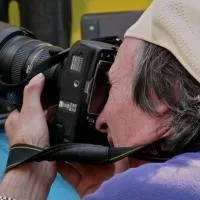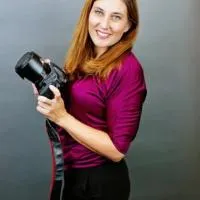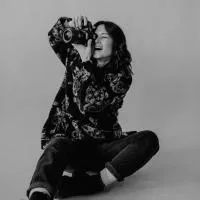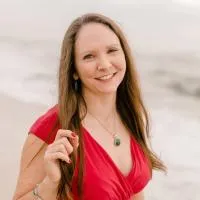Contents
I love writing how-to articles, and I assume you like getting practical advice on how to improve your photography site. But this time I have something different (and arguably more important) for you.
Sometimes, photographers ignore or misinterpret web-design best practices because of a (flawed) mindset or because they’re looking at it from the wrong perspective.
A shift in mindset might be the exact thing you need to really take your site to the next level. Until you change your beliefs, you never do what’s right, or what necessary.
So let’s get started. No specific “tips & tricks” here.
My aim instead is to give you CLARITY.
1. SEO is no longer a game you can “win” with tags & keywords; Google cares more instead about user satisfaction.
Regarding SEO, you have to look at a broader picture.
No longer can you just craft perfect SEO titles & meta-descriptions, or cram specific keywords into any piece of content on your site, and except to rank higher overnight.
Google is instead protecting its users by closely analyzing how they browse your website.
Allow me to exaggerate for effect:
You followed various SEO best-practices and placed your target keyword/phrase into your page titles, SEO titles and meta-descriptions, H1 & H2 tags, image ALT tags, and various other places throughout the site.
You’re bound to rank on the 1st page in Google for those specific terms, right?
But then some visitors reach your site and…
- they wait a few seconds extra for the pages to load
- something about the design doesn’t feel right
- they’re overwhelmed by the confusing navigation
- they can’t (easily) find the content they came looking for
- they’re sometimes “greeted” with a site functionality problem or a broken link
So they leave…
And Google takes notice: “This website is probably not relevant or good enough, let’s rank it lower.”

So get back to basics: think about how to create a good experience for users on your site. And write your SEO tags for humans, not for Google.
2. Being on the web & being found on the web are two different things (a.k.a. the importance of off-site SEO)
This was actually a quote from a photographer interview I did on my site, and it so true that it was worth separating it from the other SEO point above.
There’s the important distinction between on-site SEO (titles/tags/captions/texts that you can control on the site) and off-site SEO (factors outside of your site). Getting relevant and authoritative links back to your site is not to be over-looked.
To learn more about this, here’s a mini-guide about “inbound links” that I wrote for this newsletter a while back.
3. Websites are not magic, they’re just multipliers of the quality of your work
I’ve covered this idea at length in this past article, be sure to read it.
My mini-manifesto “Images matter most”, one of the first articles on the blog, also acts as a good reality check:
And this is also the reason I don’t do photo critiques or portfolio editing for web-design clients. They are responsible for the work they put out, for their creative vision. I just make sure their site is in perfect technical & aesthetic shape.
4. Unless you’re doing it as a hobby in your spare time, photography is a business. And you should start acting like a business owner.
That means that you might have to learn many skills besides shooting & editing photos: marketing, SEO, web-design, budgeting, invoices, contracts, copyright law. As a business owner, you need to wear many hats.
Don’t get me wrong, you don’t have to be an expert in these fields. Most of the time you can hire people to do this work for you. But you have to at least do your research and understand the basics.
And sometimes you just need a mindset shift: treating what you do as a business allows you to see things differently.
Many photographers are afraid that seeing their work as a business will take something away from their usual creative flow. Sure, you’ll need to work on “boring business stuff” by taking time away from what you love doing. But it’s all about growing your business and getting the freedom to do more of what you love :-)
Don’t know where to start? Scheduling a monthly review for your website could be helpful.
And how about: defining your target audience. Once you read through those examples I listed out, you’ll see what I mean. Those photographers have developed a business sense over time, yet they’re still incredibly creative. “Business” and “creativity” go well together.
5. Seeing your photography website as an investment instead of an expense
Here’s an interesting email I got from a photographer one day:

My thoughts when seeing this email: “The cost for what?” :-)
I didn’t know if the photographer wanted a single page or a full-featured redesign (for which the work involved obviously varies a lot). I didn’t even know if they had an existing site or not.
There is a resistance towards hiring somebody and allocating a budget towards the website. This is completely understandable in today’s economy, everyone wants to cut down on costs.
But you can’t expect serious results from that. Just like photographers try to find clients who value their work, hiring professionals in other industries (web-design & development here) is often overlooked.
Bryan Caporicci from Sprouting Photographer wrote about this on his site’s blog:
“Photographers should consider a custom website – you have to spend money to make money.”
And he emphasized this idea in one of his podcast episodes too, by saying:
“Photographers talk about the importance of hiring pro photographers, and yet they’re often first to try and go do something themselves and not hire professionals in other industries.”
To transition from an expense to an investment mindset, it’s important to know who you’re working with (and how efficient your work relationship is).
Technicians perform tasks, they only focus on their time and output. Therefore, they are an expense and a commodity.
Professionals provide solutions. They focus on the results and value they create. So they’re an investment and are worth paying relative to the value they create. With a ton of experience in photography websites and a willingness to understand the big-picture in projects, I strive to always position myself in the latter category.
6. Find your photography niche instead of being a jack of all trades
In an over-saturated marked, you sometimes need to specialize in a smaller niche. And even though you’ll be targeting a smaller audience, you’ll be a better fit for them because you’ll be seen more of an expert in that field.
Ways to niche down:
- through the type of photography you shoot (wide-angle, underwater, aerial, black and white, medical etc.)
- through your photographic style (weddings with a Hollywood twist, funny portraits, overly-colorful etc.)
- by covering a specific location/area (and only accepting clients from there)
- through how you do online marketing (blogging, publications, events etc.)
An excellent resource for learning how to choose a niche for your photography business is “The Niche Notebook – 100+ Photography Niches Actually Picked by Photographers”. It’s a free download with great examples of photography business niches for your inspiration, check it out.
7. Let go of the “build it and they will come” mentality
With millions of new websites online, just getting something up online does not guarantee that people will find you. It’s not enough.
This ties into the mindset of thinking of your photography work as a business (and therefore considering it a continuous investment of your time and resources, not a one-time launch).
First of all, your website needs continuous updates:
- new blog posts
- fresh featured galleries (on on this here)
- continuous testing and improvements
- adapting to design trends
Secondly, when you’re just starting out, your website acts like a portfolio. People who want to check out your work can do that online, which is great. But in the beginning the site won’t bring any new leads on its own. You have to continue putting out quality content to achieve that, and, most importantly, focus on other strategies to get clients as well: partnerships, outreach etc.
This is the digital era, everyone has a website. If you’re just started out with photography and are thinking of making the leap and building your first website, I’m not trying to scare you. I’m just trying to help you get realistic expectations about what a website can do for you and how much work you need to put it.
Build it, continue working hard and then they will come.
8. Even if you hate “minimalism”, your website needs simplicity and clarity
The word minimalism is loaded with bad preconceptions, so I actually dedicated an entire part of an article to clearing minimalism’s reputation :-)
So let’s use the word simplicity instead.
What I mean by it is:
- learning to limit the choices you give to your visitors
- being intentional with how you build your site.
Instead of overwhelming them with too much stuff, you should guide them using a clean navigation and straight-to-the-point content.
Is it clear to first-time-visitors who you are and what they can find on your site? Not sure? Try to improvise a little user-testing: ask some of your friends/relatives to sit down and browse through your site for a few minutes. Don’t lead them or explain the site to them, just ask them to think out loud and comment on whatever they’re seeing. Trust me, this can be really insightful.
Another relevant snippet from a photographer I interviewed on the blog:
“I think that when someone lands on your homepage they should know in a split second what it is you offer, what your specialty is, and where they should click next.”
9. Your website is your home base. Social media profiles are just marketing hubs.
I have a short piece for you to read on this topic: “Personal portfolio or social media profiles?”
Here’s the main idea: you don’t really “own” your social media profiles, those companies can always change the rules on you. On the other hand, a website is an asset you can control, that you have copyright over. So it’s good to have both, and not just focus on your social profiles.
To confirm this idea, here are snippets from two photographer interviews I did:
“I see some people not putting enough effort into their business sites. They may be putting more into Facebook for example. I have actually heard people say that they are concentrating on putting everything on Facebook rather than their websites because people are there. But what happens if that social network goes away? They need to find the balance by using Facebook or other social networks to direct people back to their website.” (Interview with Patricia Davidson)
“As a creative I think you should be extra careful posting your work on social media sites, it is important to me that I retain complete ownership of my photographs and the written content I produce for my blog. By running and maintaining my own site I am better able to control my content.” (Interview with Paul Kerins)
10. Personality trumps accolades
Many photographers are struggling with what to include in their Bio page, especially if they’re just starting out.
And my advice is always to be open and write about what drives them as a photographers, and what makes them unique. Even if you don’t have bragging rights (awards, memberships) or social proof (followers), you can convince visitors by showcasing your personality.
Besides having a good website design (especially colors, fonts & spacing), the words you use on your site have incredible power. Using the right tone of voice can make all the difference:
- interesting stories of yourself
- re-assuring people about your services in a warm & inviting way
- showing a (smiling) self-portrait
- being funny (within reason)
The main reason this is true: the web is over-crowded these days (anybody can put up a website), so trust is the name of the game. And just like you decide to work with someone else or buy something, trust plays an important role (and can be obtained through honesty and authenticity). More on the topic here.
Bonus
How to develop your soft skills as a photographer:

















